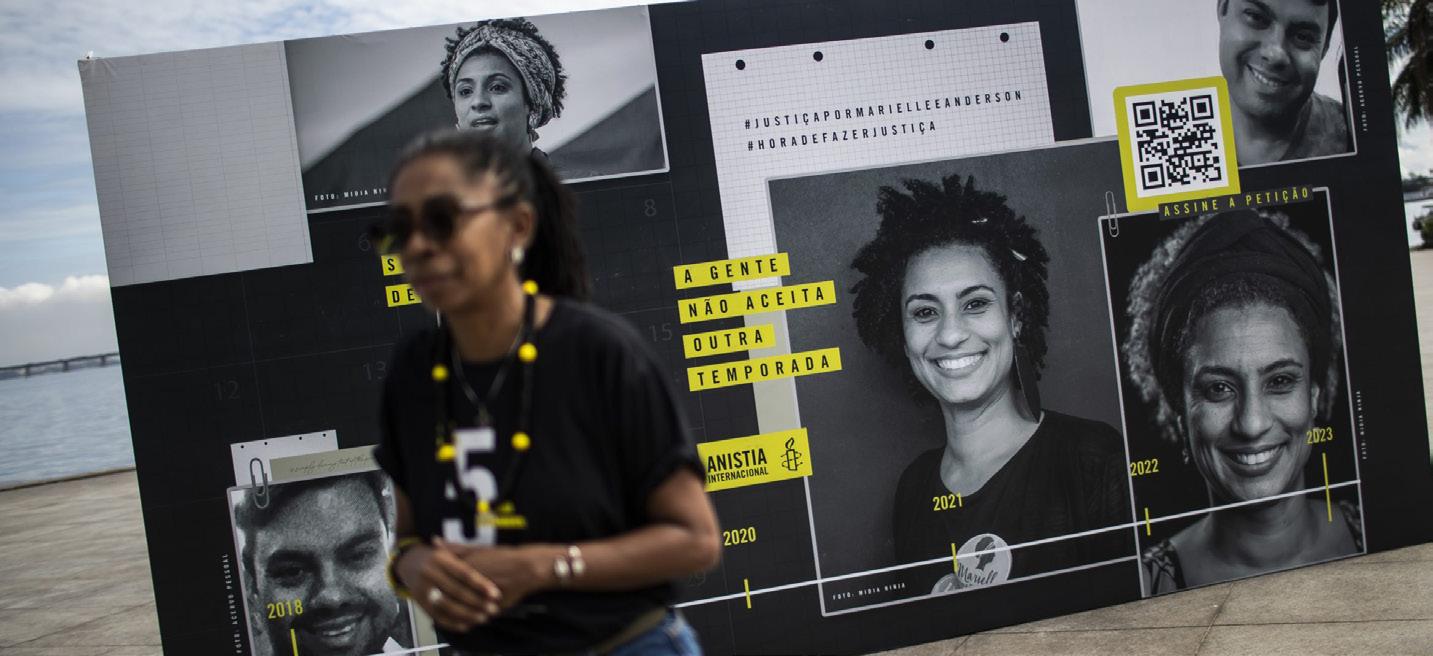
1 minute read
Int’l Afro Latin American Women’s Day: Remembering Marielle Franco
Councilwoman
Marielle Franco, was a noted feminist and fighter for LGBTQI+rights. She was assassinated on March 14, 2018. (AP Photo/Bruna
By JESÚS CHUCHO GARCIA Special
to the AmNews
Translated by KAREN JUANITA CARRILLO Amsterdam News Staff
The 25th of July is celebrated as the International Afro Latin American, Afro Caribbean, and Diaspora Women’s Day. This commemoration was initially created by the Red de Mujeres Afrolatinoamericanas, Afrocaribeñas y de la Diáspora (Latin American and Caribbean Black Women’s Network) in 1992 when the women came together to establish the organization in Santo Domingo, Dominican Republic. The network began speaking up about the global struggles women of the African diaspora and their descendants have faced for decades.
In Venezuela, the Union de Mujeres Negras and the Fundación Afroamerica, has worked since the 1980s alongside Afrodescendant women such as Argelia Laya, Irene Ugueto, Josefina Brighton and Maria Leon to fight for recognition of the role that women have played in the country’s history.
Violence has been one of the most reprehensible behaviors to persist against women. To combat the horrors of violence against women, the United Nations approved in 1994 one of the world’s great legal achievements—the Convention of Belém do Pará, which, as expressed in its article 3, ensures that “every woman has the right to a life free of violence, both in the public and private sphere.” Article 4 states that “every woman has the right to the recognition, enjoy- ment and protection of all human rights and freedoms enshrined in regional and international instruments, including respect, human dignity and freedom from torture.”
The reality in Latin America: Marielle Franco
According to the Economic Commission for Latin America (ECLAC), Brazil has been the country with the highest number of femicides throughout 2023, followed by Mexico. There were 619 murders committed against women in Colombia alone last year, nearly 40 women murdered monthly, according to the country’s Observatorio Colombiano de Feminicidios. In 2021, during the COVID-19 pandemic, ECLAC estimates 4,473 women were victims of femicide. According to this organization and the Observatory of Gender Equality in Latin America, this constitutes 12 violent deaths of women every day in the region.
Racism only exacerbates the situation. A notable case was that of the Afro Brazilian leader Marielle Franco, who rose from the favelas— one of the most impoverished sectors of Rio de Janeiro, Brazil. A sociologist, she was elected to serve as councilwoman after garnering heavy support in the 2016 elections. Franco was a defender of women, a caring mother, and a fighter for LGBTQI+ groups. She was assassinated on March 14, 2018.
Today, violations of women’s rights are akin See MARIELLE FRANCO on page 29










